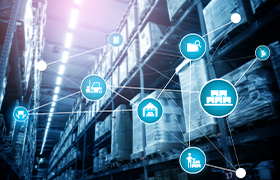
Indonesia: Reboot - Eliminating the Nation�s Import Dependence in the Polypropylene Market

The Indonesian petrochemical industry has been heavily reliant on polymer and corresponding feedstock imports in the past. The share of imports in the total polymer consumption in the nation has been rising over the past 5 years. Polypropylene (PP), a polymer finding major applications in the Indonesian consumer packaging segment, has seen its import volume rise with at a CAGR of 16-17% over the past 5 years. As of 2013, almost 45% of the total domestic consumption of PP is being sated by the imports coming into the nation. These levels are only slated to rise as the PP demand in the nation is estimated to rise with a CAGR of 4-5% during the next 5 years. In the wake of this realization, Indonesia is set to invest close to 7 billion USD in the petrochemical sector in the coming years, with plans to bolster both the upstream and downstream section of the market. The long term goal of converting Indonesia from a net petrochemical importer to a self-sufficient nation will certainly take some doing. On the polypropylene front, all the right moves have been planned, right from infrastructure/transportation development to investments in the feedstock market. There have been some setbacks on the way, and there are sure to be more in a constantly moving PP market, but the country is equipping itself well in preparing for the robust growth in domestic PP demand it stands to witness in the coming years. As for the plans to eliminate the reliance on imports completely, 2025 would be a more realistic target taking into account the timelines for all the expansions planned in the region. Until then, Indonesia would continue to be an import-oriented petrochemical hub in South East Asia, with the annual net PP deficit ranging between 500 and 700 kilo MT/year until at least 2018. Author: Himanshu Sati
Related Insights:
View All
Get more stories like this
Subscirbe for more news,updates and insights from Beroe






